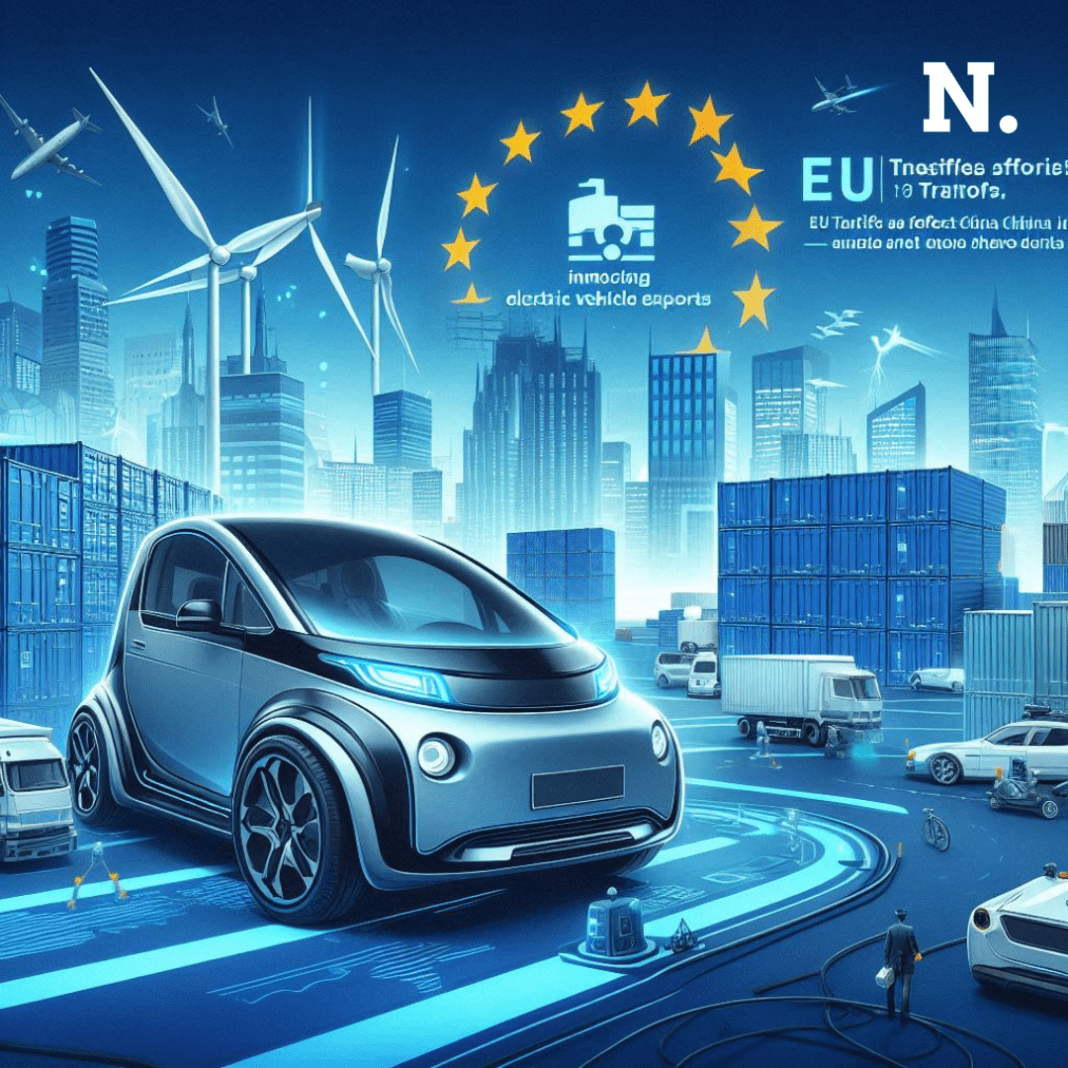The European Commission’s anti-subsidy investigation into Chinese electric vehicles (EVs) is highly significant. The inquiry led to a decision to impose import tariffs on China-made battery electric vehicles (BEVs). This decision reflects the increasing demand for these environmentally friendly products in the European Union’s market.
Tariffs and State Aid Findings
The European Commission announced its first provisional decision under the anti-subsidy inquiry for BEVs assembled in China, dividing the tariffs by brands based on the level of state aid received. The tariffs are as follows:
– BYD: 17.4%
– Geely: 20%
– SAIC: 38.1%
– Other BEV producers in China that cooperated in the investigation but were not individually sampled: 21%
– Other Chinese manufacturers of BEVs who refused to collaborate: 38.1%
These tariffs will be in addition to the existing 10% import tariff. Industry experts had anticipated a 20% rate. The tariffs were unexpected by these experts. The Commission’s findings indicated significant state support from the Chinese government. The government heavily subsidizes the entire BEV supply chain. This support ranges from raw material extraction to shipping.
Implementation of Tariffs & Beijing’s Response
The new tariffs will be implemented on July 5, unless China provides convincing solutions to address its unfair trade practices. Historically, Beijing has been reluctant to engage with Western allies on such issues and often denies the root of the problem. The decision will affect both Chinese and Western brands operating in China, but not equally. For instance, Tesla and BMW will face an average 21% tariff, while SAIC, with joint ventures involving Volkswagen and General Motors, will be subject to a 38.1% rate. Tesla has filed a request for a tailored rate, which may be granted later this year.
BYD, a Shenzhen-based company aiming for a 5% share of the EU’s BEV market, received the lowest tariff rate among the group. This year, BYD overtook Tesla as the leading manufacturer of BEVs worldwide.
Commission’s Statement and Goals
Valdis Dombrovskis is the Commission’s Executive Vice-President in charge of trade. He stated that the decision was based on clear evidence from an extensive investigation. This investigation was conducted in full respect of World Trade Organization (WTO) rules. He mentioned that the goal is to restore a level-playing field. Another aim is to ensure the European market remains open to Chinese electric vehicle producers. This is conditional on their adherence to globally agreed trade rules.
Rising Concerns and Market Impact due to Tariffs
Brussels is particularly concerned about Beijing’s substantial subsidies. These subsidies may make it difficult for European firms to compete with Chinese producers. This situation could repeat with solar panels, where Chinese companies edged European companies out of the market. Sales of China-made BEVs have surged from 57,000 units in 2020 to over 437,000 in 2023. The transaction value has risen from €631 million to €9.66 billion.
According to Transport and Environment (T&E) research, the market share of Chinese brands in the EU’s BEV market increased from 0.4% in 2019 to 7.9% in 2023. If present trends continue, their market share may surpass 20% by 2027.
Multi-Pronged State Aid in China
The Commission has established the presence of multi-faceted state aid in China, including grants, cheap loans, state-backed credits, tax rebates, VAT exemptions, and discounted prices for goods and services. The investigation, initiated in October following Ursula von der Leyen’s State of the Union address, aims to determine if this assistance could cause significant harm to the EU industry in the future. The provisional decision suggests the threat is real, necessitating radical measures to prevent severe market disruptions.
Beijing’s Strong Reaction against the Tariffs
The announcement elicited an immediate and harsh response from Beijing. A spokesperson for the Ministry of Commerce criticized the investigation as a “naked protectionist act” that inflates the level of subsidies and imperils the EU’s ambitions to achieve carbon neutrality by the year 2050. The spokesperson asserted that China would take all necessary measures to defend its companies’ legitimate rights and interests.
Potential Retaliation and Economic Impact
Tit-for-tat retaliation from China is highly likely. In the lead-up to the announcement, Beijing had indicated that it might target sensitive EU sectors, such as agriculture and aviation, in response to the tariffs. The additional tariffs are designed to make China-made BEVs more expensive in Europe, aligning their prices closer to those of European competitors, thereby ensuring fair competition.
Challenges and Political Dynamics
How much the gap will close remains uncertain. Currently, Chinese companies charge more for BEVs in Europe than in their home market, referring to this as the “EU premium.” This pricing method allows them to internalize tariffs, possibly without impacting final consumer costs.
The tariffs will need approval from EU member states in November to become permanent, requiring a qualified majority vote. Germany, a major car exporter with significant investments in China, has expressed opposition to additional tariffs. The German Association of the Automotive Industry (VDA), supported by BMW, Mercedes-Benz, and Volkswagen, argues that additional tariffs could lead to a major trade conflict without strengthening the competitiveness of the European automotive industry.
Conclusion
The European Commission’s decision to impose additional tariffs on Chinese BEVs reflects a significant effort to address perceived unfair trade practices and support the EU’s automotive sector. As the situation develops, authorities will closely monitor the political and economic implications, with all eyes on the upcoming vote in November. The ultimate goal remains to create a fair and competitive market while addressing the broader challenges posed by state-supported industries.





